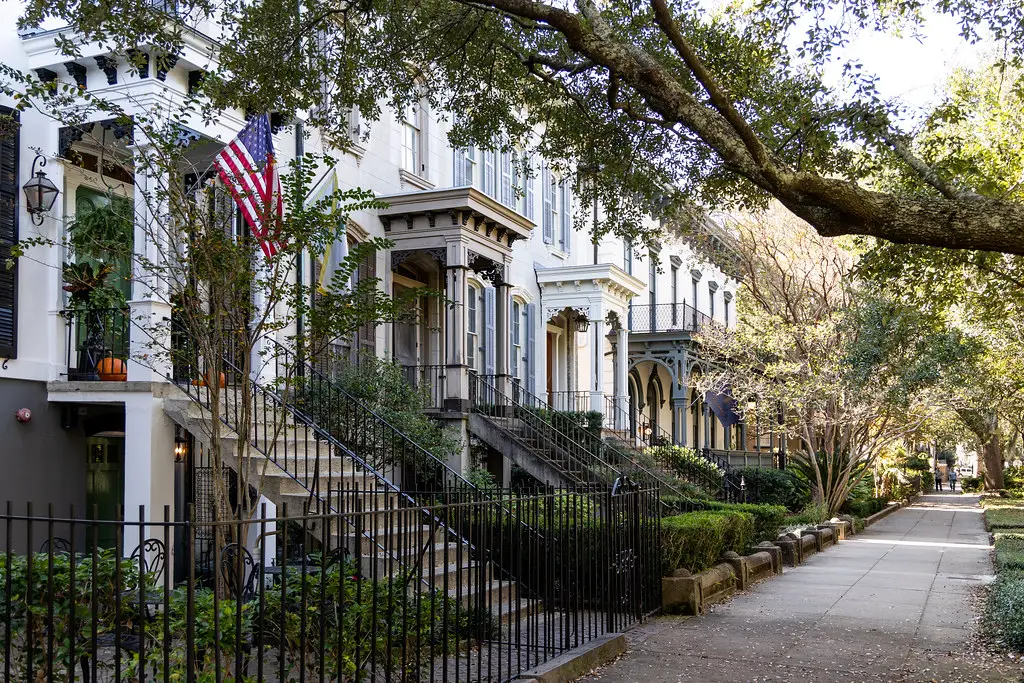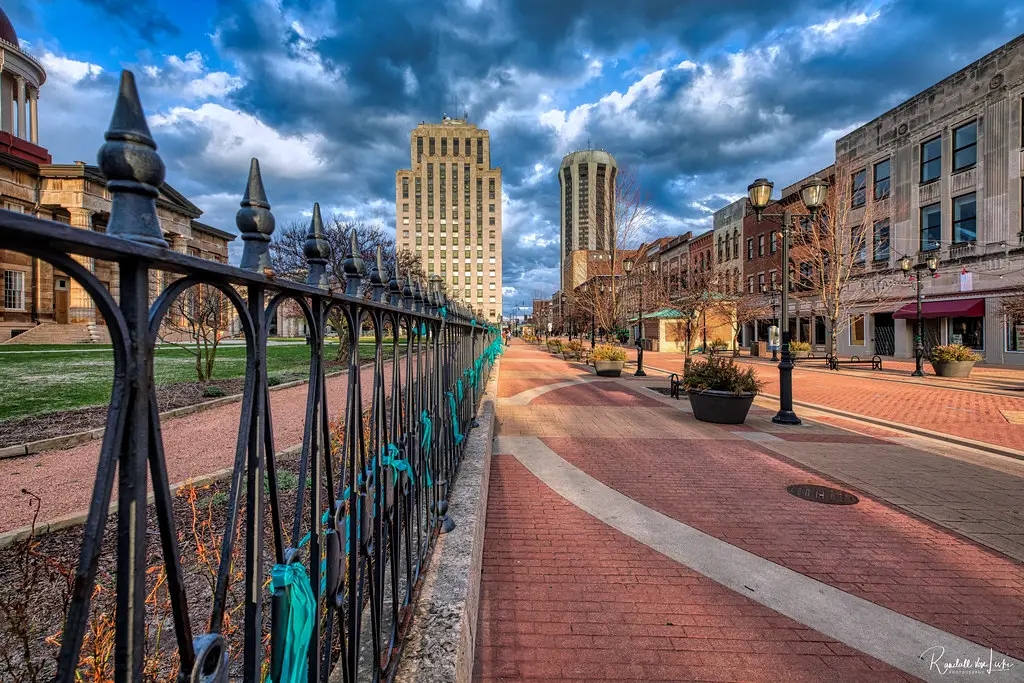Property taxes may not be the most exciting part of homeownership—but they hit where it hurts: the wallet. Across the U.S., several states are quietly overhauling their property tax codes, and homeowners are starting to notice. From reappraisal schedules to caps being lifted or restructured, these changes often fly under the radar until the bill arrives. Here are 13 states making major moves—and why many residents are up in arms.
1. Texas

Texas homeowners are seeing sweeping changes to property tax rules that sound good on paper—but aren’t delivering relief for many. According to Forbes, while recent legislation aimed to cap appraisal increases and compress school district taxes, fast-rising home values have still caused tax bills to soar. The cap on annual appraisal increases for non-homesteaded properties was lowered, but homeowners say it’s not enough. Many feel the reforms are a distraction from the real problem: the state’s heavy reliance on property taxes to fund public services.
On top of that, local governments in Texas continue to raise tax rates to offset any compression. It’s created a confusing, layered system where reductions in one area lead to increases in another. Homeowners are frustrated by the lack of transparency and the sense that their input doesn’t matter. For a state known for being tax-friendly, the reality is getting harder to stomach.
2. New York

In New York, property tax reform is hitting longtime homeowners hard—especially in places like Nassau County. As noted by The New York Times, the county recently ended a freeze on property reassessments that had lasted nearly a decade, triggering dramatic spikes in tax bills. Some residents saw increases of $1,000 or more overnight, and many are still confused about how the new assessments were calculated. Lawsuits and appeals have flooded in, but relief has been slow.
The state also passed changes allowing localities to implement new fees and reassessments more frequently. That means New Yorkers can expect more frequent tax bill surprises in the years ahead. The impact is especially harsh for seniors on fixed incomes. Many are wondering whether they can even afford to stay in the homes they’ve lived in for decades.
3. California

California’s Prop 13 has long protected homeowners from massive property tax hikes—but newer legislation is starting to chip away at those protections. NBC 7 reports that voters approved Prop 19 in 2020, which restructured how inherited properties are taxed, leading to higher bills for many families. Where once homes could be passed from parent to child with the tax base intact, now those children may face full reassessments if they don’t live in the home. It’s a dramatic shift that’s catching many Californians off guard.
There are also growing calls to reevaluate Prop 13 altogether, particularly in high-cost urban areas. While it protects longtime owners, critics say it disproportionately shifts the burden onto new buyers. That’s creating generational tension and making the dream of owning a home in California even more fragile. For many families, the new property tax realities feel like a bait and switch.
4. Georgia

Georgia has become a hotspot for real estate investors and out-of-state buyers—but local homeowners are footing the bill. As Business Insider recently noted, rising valuations across counties like Fulton and DeKalb are causing major property tax hikes. Georgia law requires counties to appraise homes at fair market value annually, but with the market moving so fast, many owners are seeing double-digit increases. Some homeowners are now paying more in taxes than they budgeted for their mortgages.
To make matters worse, the appeals process is confusing and slow. Many homeowners don’t know they can challenge their assessment—or how to do it. And while Georgia offers some exemptions, like for seniors, they often don’t go far enough. Residents are calling for reform, but so far, state lawmakers haven’t stepped in.
5. Illinois

Illinois already has some of the highest property taxes in the country—and they’re still going up. While local officials blame school funding formulas and pension obligations, homeowners are feeling squeezed. Cook County in particular is seeing controversial reassessments that have left residents in shock. Many are asking why their taxes keep rising even when property values in some areas remain stagnant.
Longtime homeowners are being pushed out of neighborhoods they’ve lived in for decades. And as taxes climb, so do home prices, creating affordability problems across the board. The state has promised reform, but so far, nothing meaningful has passed. For Illinoisans, property tax bills have become a permanent headache.
6. Colorado

Colorado’s Gallagher Amendment repeal was pitched as a fix—but some homeowners are now facing the unintended consequences. With that cap gone, tax rates on residential properties have started creeping up, especially in high-growth counties. New statewide property assessments in 2023 led to widespread sticker shock. Many families are scrambling to understand how their taxes jumped so high, so fast.
The problem is especially acute in resort areas and rapidly developing suburbs. Local governments, facing inflation and infrastructure costs, are not holding back on increases. Some residents feel they were misled about what the Gallagher repeal would mean. Others are calling for a new system that offers more predictability and protection.
7. Florida

Florida has long attracted retirees with promises of low taxes, but a wave of reassessments is shaking that image. As property values soar, especially along the coasts, so do tax bills—even with the Save Our Homes cap in place. That cap only applies to homesteaded properties, leaving snowbirds and second-home owners vulnerable. Many are finding themselves priced out by taxes alone.
Counties are also exploring new revenue sources, including fees that function like taxes but don’t fall under the same regulations. That means homeowners may see increases without the same oversight. In booming areas like Tampa and Naples, tax hikes are now routine. The Sunshine State is starting to lose its glow for some.
8. Pennsylvania

Pennsylvania’s property tax system is one of the most controversial in the country, and efforts to overhaul it have failed repeatedly. Meanwhile, school districts continue to raise taxes to meet funding gaps, especially in suburban counties. Homeowners are caught between state inaction and local desperation. The result? Ever-higher bills.
Some counties haven’t reassessed property values in decades, leading to wildly inconsistent tax burdens. That’s triggered lawsuits and pushed the issue back into the political spotlight. But while reform is often promised, it rarely materializes. In the meantime, taxpayers are footing the bill for the dysfunction.
9. Washington

Washington State doesn’t have an income tax, which puts more pressure on property taxes for revenue. With real estate prices booming in Seattle and surrounding areas, tax bills are following suit. Recent levy increases have been used to fund education and infrastructure, but many feel they’re being overburdened. Homeowners who bought modest homes decades ago are seeing their taxes nearly double.
The state has introduced some exemptions for seniors and veterans, but eligibility is limited. Critics argue that the state is relying too heavily on homeowners while corporations and investors enjoy loopholes. There’s a growing demand for systemic change—but not much political consensus on how to get there. Until then, residents are stuck in limbo.
10. Arizona

Arizona has capped property tax increases in the past—but recent budget pressures are putting those limits to the test. With population growth straining schools, roads, and water systems, local governments are quietly expanding assessments and levies. Maricopa County homeowners in particular have noticed higher bills with little explanation. It’s leaving residents confused and frustrated.
The state’s tax code is notoriously complex, making it easy to miss changes. And while Arizona still looks affordable compared to coastal states, many locals worry that won’t last. As property taxes creep up year over year, retirees and young families alike are feeling the pinch. Some are even considering moving elsewhere in search of stability.
11. Minnesota

Minnesota has been gradually shifting more of the property tax burden onto homeowners as commercial assessments decline. Local municipalities are increasing levies to cover budget shortfalls, often with little input from residents. The result is a steady rise in bills that catches many off guard. Even modest homes in outer suburbs are seeing significant hikes.
School districts are also proposing referenda that would add even more to annual tax obligations. And while some communities vote these down, others pass without much public scrutiny. The combination of growing needs and limited income sources is fueling frustration. Homeowners feel like they’re being nickel-and-dimed.
12. Oregon

Oregon’s Measure 5 and Measure 50 were designed to keep property taxes under control—but their side effects are now showing. Because the system limits how much assessed value can grow, newer homeowners often pay far more than neighbors in identical homes. This creates inequality and confusion. Recent efforts to revise the system have sparked intense debate.
Counties are also raising local levies to make up for what they lose under the cap system. So while rates appear stable, bills are still climbing. For many, the whole system feels unfair and outdated. And until lawmakers act, frustration will only grow.
13. Missouri

Missouri’s reassessment process in 2023 caused waves across suburban counties like St. Louis and Jackson. Many homeowners saw their valuations spike by 30% or more. Although state law requires assessments to reflect market value, the scale of increases left people feeling blindsided. Appeals boards were flooded, and some counties struggled to keep up.
Lawmakers have introduced bills to freeze property taxes for seniors, but none have passed yet. Meanwhile, the lack of transparency has eroded trust in the process. Some Missourians are even calling for a complete overhaul of the system. Until then, expect more surprise bills—and more public backlash.
